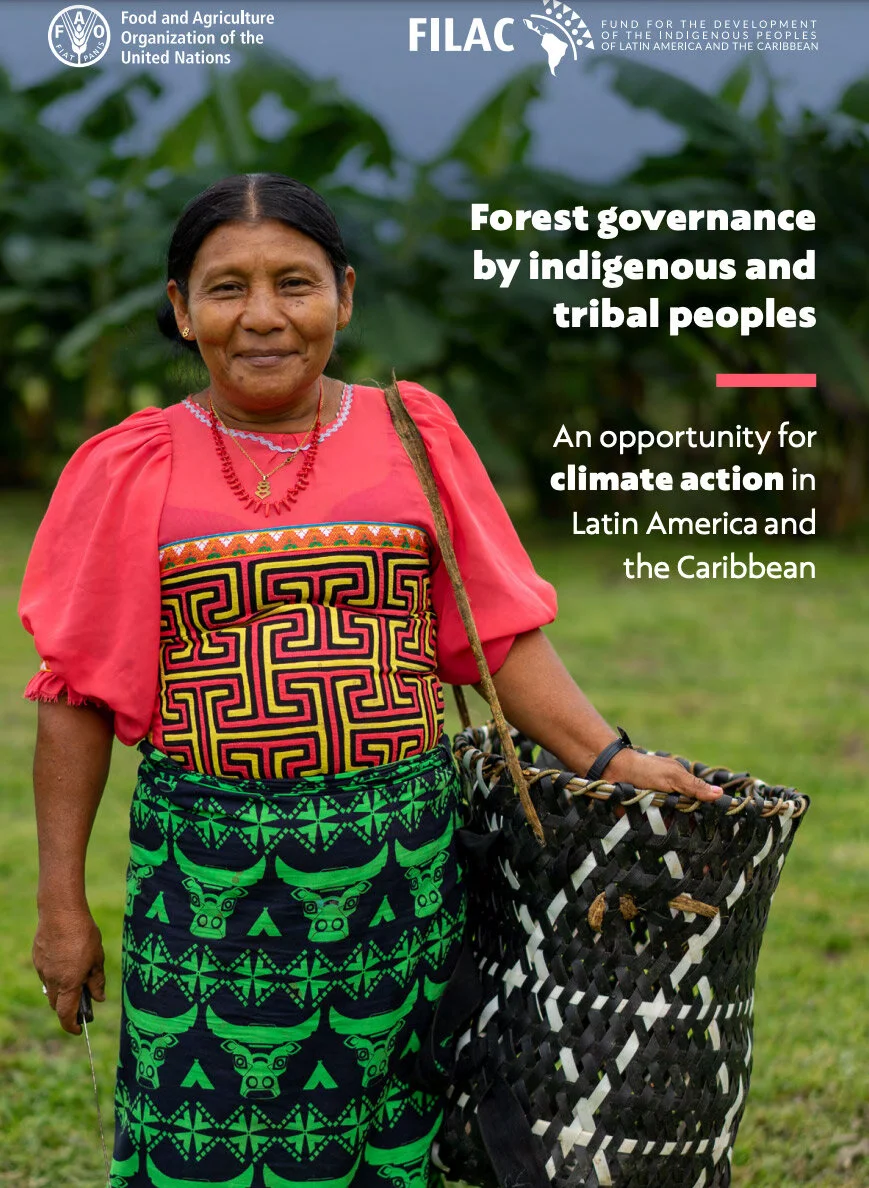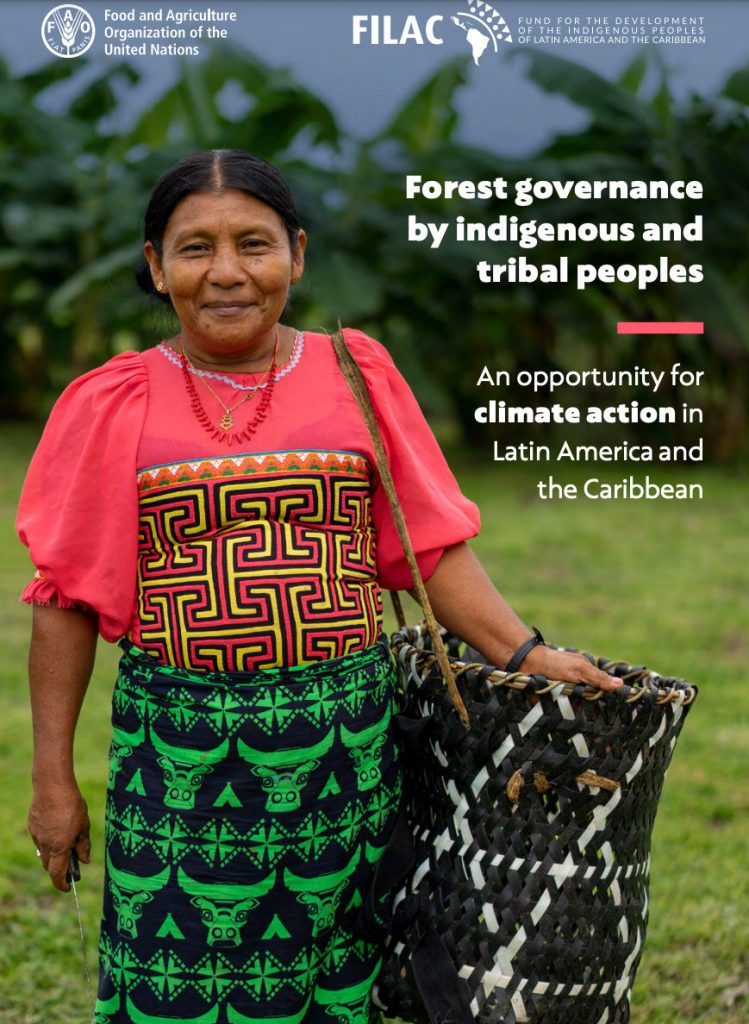Forest governance by indigenous and tribal peoples. An opportunity for climate action in Latin America and the Caribbean
Abstract:
The document summarizes the report that, based on a review of more than 250 studies, demonstrates the importance and urgency of climate action to protect the forests of the indigenous and tribal territories of Latin America as well as the indigenous and tribal peoples who protect them. These territories contain about a third of the continent’s forests. That’s 14% of the carbon stored in tropical forests around the world; These territories are also home to an enormous diversity of wild fauna and flora and play a key role in stabilizing the local and regional climate.
Based on an analysis of the approaches that have proven effective in recent decades, a set of investments and policies is proposed for adoption by climate funders and government decision-makers in collaboration with indigenous and tribal peoples. These measures are grouped into five main categories: i) strengthening of collective territorial rights; ii) compensate indigenous and tribal communities for the environmental services they provide; iii) facilitate community forest management; iv) revitalize traditional cultures and knowledge; and v) strengthen territorial governance and indigenous and tribal organizations. Preliminary analysis suggests that these investments could significantly reduce expected carbon emissions at a low cost, in addition to offering many other environmental and social benefits.
DOWNLOAD HERE: ForestGovernance
Source: FAO


